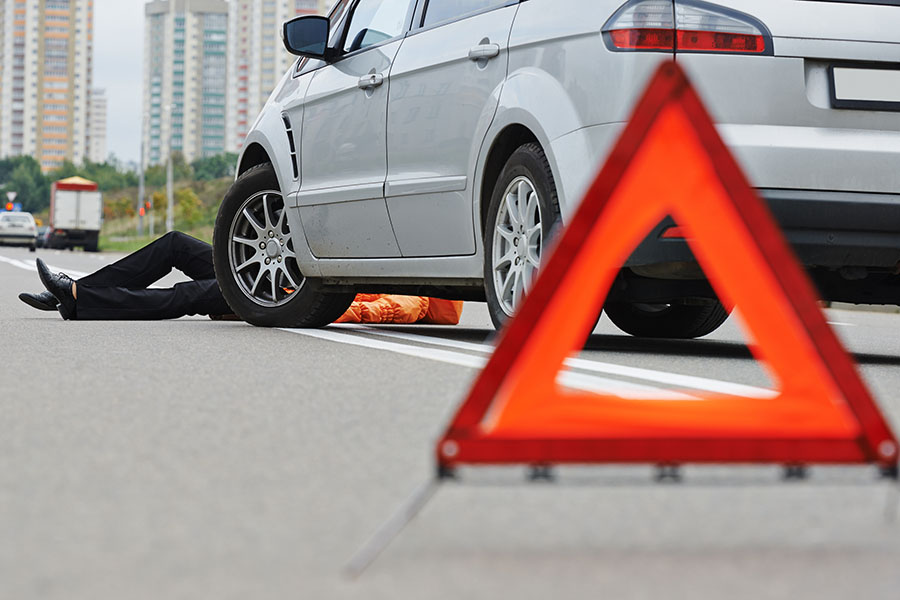In 2019, the National Highway Traffic Safety Administration reported that 119 pedestrians were killed in Alabama. This may seem like a small number. But, Alabama ranks ninth for pedestrian fatality rates in America, with a fatality rate of 2.43 deaths per 100,000 people.
Pedestrian fatalities can be particularly sad because of Alabama’s contributory negligence laws. Under these laws, if the pedestrian is even 1% at fault, the driver can’t be convicted of wrongful death.
This can be extremely unfair to family members of people who were killed when crossing the street. However, an attorney who is experienced with pedestrian accidents can help you get the money your family deserves after an untimely death.
What laws must Alabama pedestrians follow?
Pedestrians in Alabama must follow the rules of the road. Like motor vehicles, pedestrians must follow traffic signals, including red lights.
If an intersection has “walk” and “don’t walk” signals, pedestrians need to obey them. When the signal says “walk,” pedestrians have the right of way. Drivers must yield to pedestrians who have a walk signal.
Many intersections don’t have specific signals for pedestrians. In this situation, pedestrians should cross when there’s a green light in the direction they’re moving in.
Cars must yield to pedestrians who are crossing the road at an intersection. However, if a pedestrian is crossing the road at a point other than an intersection, they need to yield to drivers.
Pedestrians should stay out of the street and stay on the sidewalk, if a sidewalk is available. On roads where there isn’t a sidewalk, pedestrians should walk as far to the side of the road as they can, while staying safe.
Finally, pedestrians should pay attention when they’re walking. Looking at a phone can lead to tragic consequences.
How do Alabama’s contributory negligence laws work?
Alabama is a contributory negligence state. This means that if the victim of a personal injury accident is even 1% at fault, they can’t receive any money in a negligence lawsuit.
For example, Bob is walking along the road and comes to an intersection. He has a “don’t walk” signal. Bob looks both ways, doesn’t see any cars coming, and decides to cross the road anyways.
Sally is approaching the intersection when the light turns yellow. She decides to speed up and makes a left turn onto the road and into Bob. Bob dies at the hospital from his injuries.
Bob’s family sues Sally for Bob’s wrongful death, saying her negligence caused his death in the car accident. The jury finds that Bob and Sally are both responsible for the accident. Bob shouldn’t have crossed the road against the signal, but Sally shouldn’t have sped up through the yellow light.
Because Bob and Sally were both at fault, Bob’s family can’t recover anything in the negligence lawsuit against Sally.
This is true even if Sally was intoxicated at the time of the accident.
What damages can you receive in a pedestrian wrongful death settlement?
Even with Alabama’s strict contributory negligence laws, an experienced pedestrian wrongful death lawyer can help a family negotiate a settlement with the insurance company. Trials can be expensive and time-consuming. Companies would often rather settle a wrongful death case outside of court, than spend time and effort on litigation.
When settling a pedestrian wrongful death case, the deceased’s estate can receive different types of damages to make up for the loss.
It can receive compensation for any expenses the deceased incurred as a result of the accident. This can include an ambulance ride and medical expenses to treat injuries, like broken bones or concussions. Funeral expenses are also included in wrongful death settlements.
The estate can also receive financial support after the wrongful death. This helps compensate a family for losing a loved one’s income over the coming years and helps prevent families from becoming destitute after the death of a breadwinner.
Money can’t bring back a loved one, but it can help lessen the blow. A family has two years to file a wrongful death lawsuit in Alabama. This gives you time to decide how you want to move forward.
Conclusion
If your loved one was killed when crossing the road, you may have a wrongful death claim against the driver. Working with an experienced wrongful death law firm can help you negotiate with an insurance company. This will let you receive all the compensation you’re entitled to. Contact us today for a free consultation.
